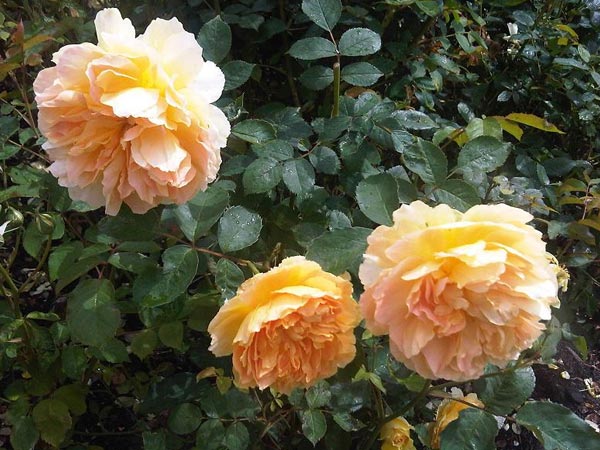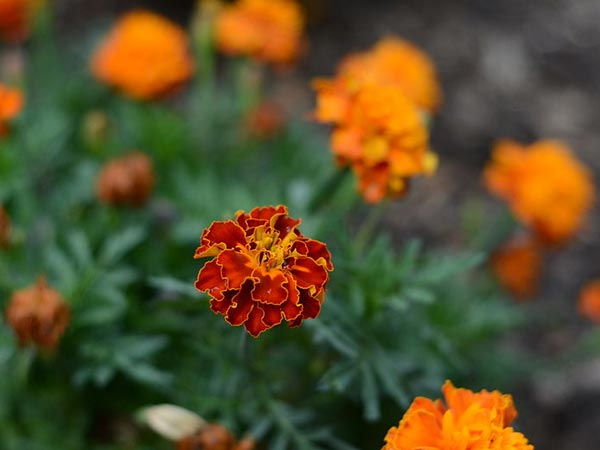Wednesday, 24 December 2014
Thursday, 11 December 2014
Massive 3,200 Year Old Tree That’s Never Until Now, Been Captured In A Single Image
This special tree nicknamed ‘The President’, measures 45,000 cubic feet and stands at 247 feet tall.
In California Sierra Nevada, there is a 3, 200 year old sequoia tree that rises at 247 feet and is nicknamed the President. There are two others with wide trunks but they do not have a large crown like the president’s. When standing forward on the top branches of the tree, one of the scientists looks taller than other climbers.
The sequoia tree measures 45,000 cubic feet, stands at 247feet tall and is estimated to be 3,200 years old. It has a 27 feet wide trunk and its branches (which are mighty) hold 2 billion needles. This is the most any tree has held in the planet. The tree also adds a cubic meter of wood every year, which categorizes him among the world’s fastest growing trees.
The giant Sequoias can only be found on the western slopes of Sierra Nevada, California. The president and other smaller trees make up this home and are above sea level at 5000-8000 ft.
The tree had for many years never been captured in its entirety. Photographers from the National Geographic worked with a team of scientist to do this. They used a set of levers and pulleys to scale the tree.
They measured different heights of the trunk, limbs, burls and branches. They counted cones and armed with this information, used mathematical models informed by information from other sequoias. The president, as they found out, contains 54,000 cubic feet of bark and wood. The tree according to this team is the largest (if you take into account its width) in the world. 32 days later the team had stitched up 126 separate photos together, to produce a breathtaking portrait of this Sequoia tree.
Chael Nichols, Ngm staff. Mosaic Composed Of 126 ImagesComposting: Ken Geiger, NGM staffClimbing Team: Jim Campbell Spickler, Giacomo Renzullo, Cameron Williams, Nolan BowmanTechnical team: Nathan Williamson; Marty Reed, Humboldt State University (HSU)
Friday, 5 December 2014
Monday, 1 December 2014
Most Famous Indoor Plants of India
Indian garden plants are rich in variety just like the diverse
culture of our country. Usually, flora and fauna grow better in warm
weathers than frosty climate. That is why there are many common garden
plants that thrive in the hot tropical weather of India. Indian garden
plants often have religious significance too. For example, the basil
plant is considered holy by the Hindus. That is why it is a fairly
common Indian garden plant that is seen in a majority of homes.
Most of the common garden plants grown in the Indian subcontinent are
also flowering plants. Actually Indians have a huge fetish for blooming
flowers and thus, you will see a fragrant garden in most of homes.
Topical flowering plants are colorful and vibrant. So you will see many
tropical plants with colorful blooms at any average Indian household.
Indian garden plants like warm weather and often bloom in the spring. We
do not have a very cold winter in India; in fact most parts of the
country have just 3 seasons namely summer, monsoons and spring. Here are
some of the commonest Indian garden plants that are easy to grow under
tropical conditions.
Basil or Tulsi
Basil is a one of the commonly grown garden plants in India due to its
religious significance. It is usually planted as saplings and need
plenty of water. It cannot stand direct sunlight but likes warm weather.
Marigold Plant
Money Plant
Hibiscus Plant

Hibiscus plants are very common in India and they too have
religious significance in Hinduism. Saplings are widely available and
the plant is easy to grow. This plant need lots of sunshine and water
twice a day. You need to prune it often to keep it in a flowering
condition.
Rose Plant

Rose plants are best for the light winters in India. You must plant
them at the end of summer and allow them to get the benefit of the
Indian monsoons. Come winter, roses will bloom and make your garden
fragrant.
Night Jasmine

Jasmine can be planted as a tree or plant. Jasmine is a fussy plant. It likes indirect sunlight and moderate watering.
Plantain Plant

Bougainvillea

Bougainvillea is a climber plant. It grows like a bush on top of walls
and gates. This flowering shrub does not need too much water or care. It
grows at a breakneck speed and can soon turn wild. So you need to prune
your bougainvillea very often.
Sunflower
For a country that gets sunshine throughout the year, sunflowers
are the ideal garden plant. Sunflowers are grown from seeds as they
sprout easily. You need to water your sunflower generously but not too
much. These plants have weak stems and thus sometimes need support from
stakes.
Fern
Lotus
Subscribe to:
Posts (Atom)












